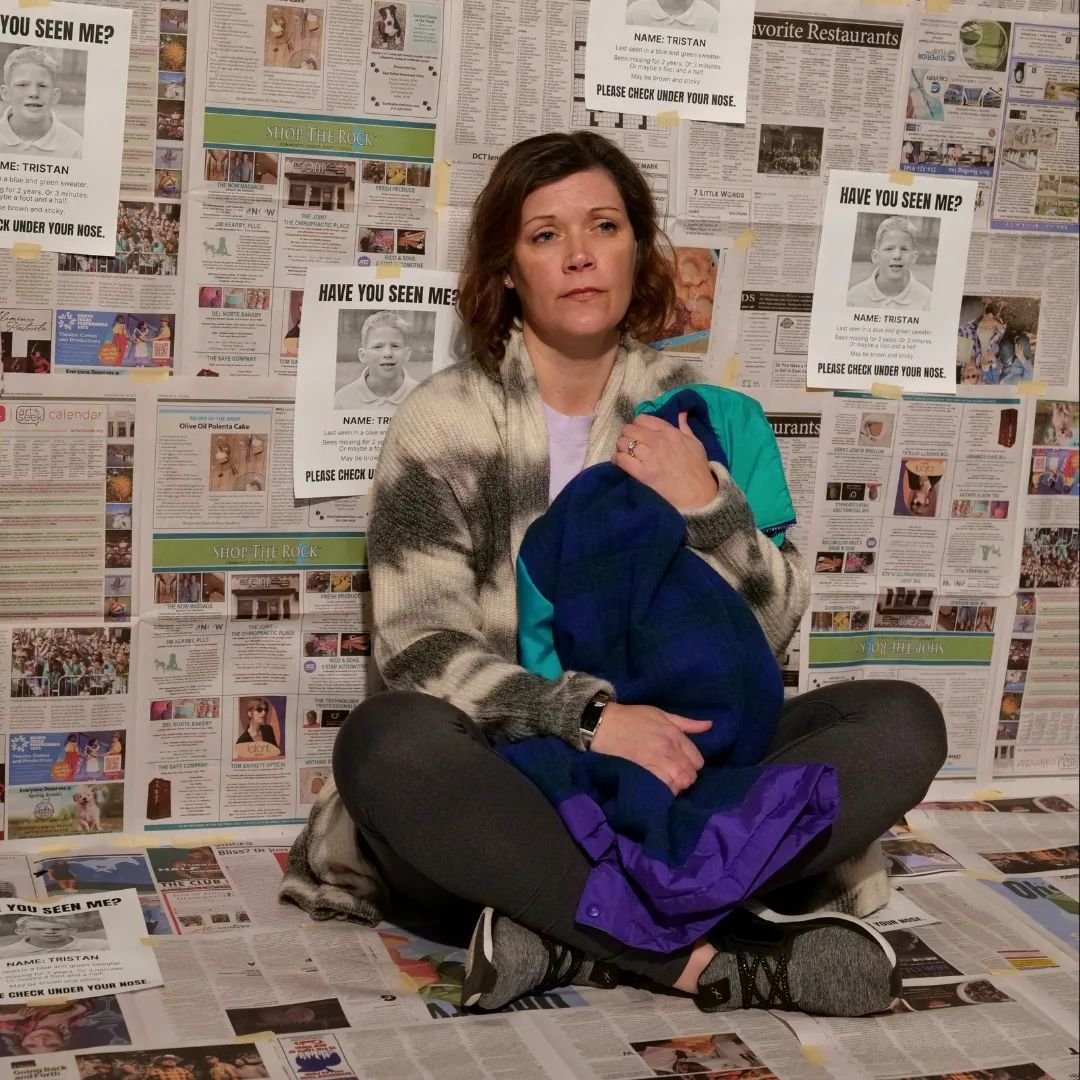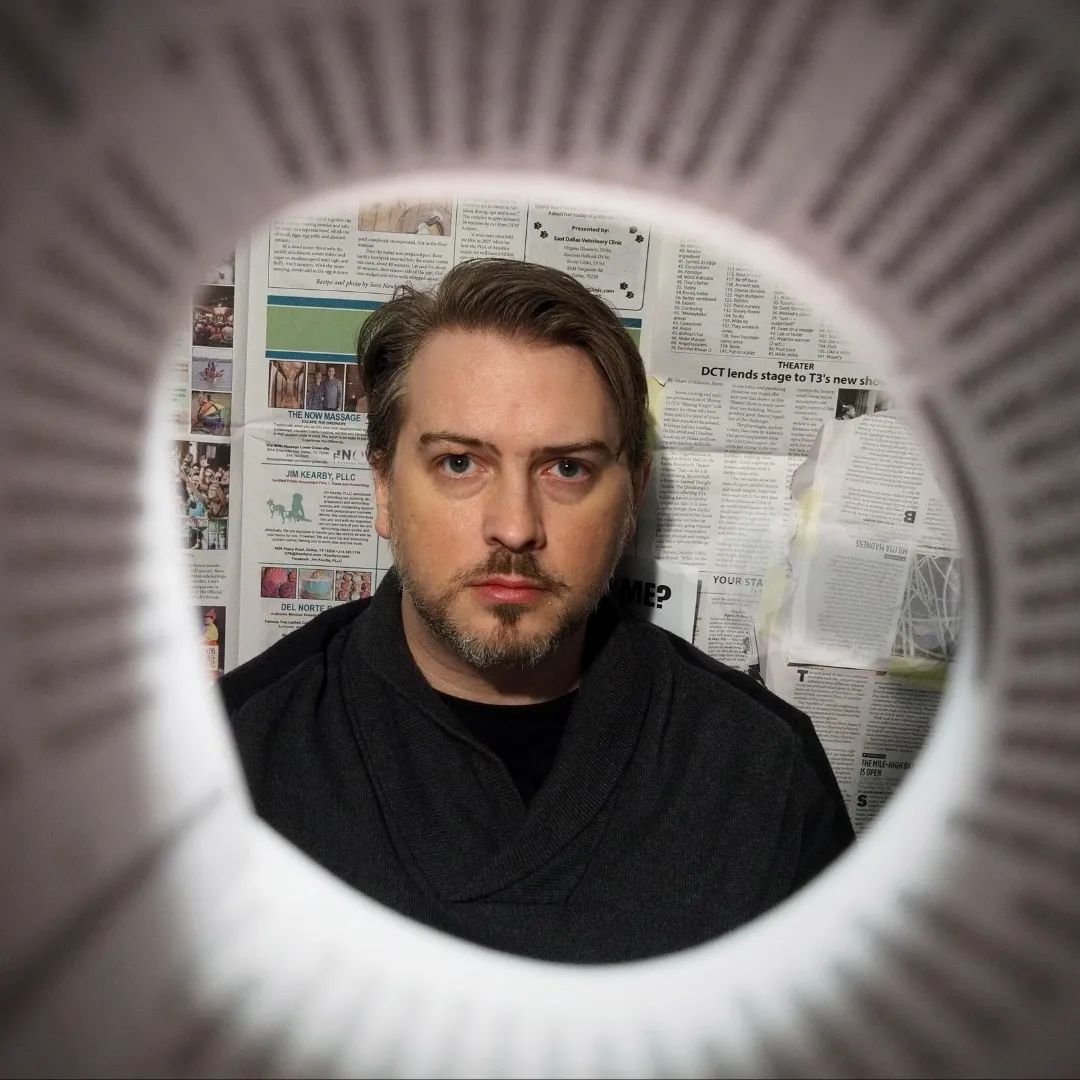in a word @ Echo Theatre
—Jan Farrington
A dark story told in shards of glass—disguised as nouns, pronouns and verbs—Lauren Yee’s disturbing in a word doesn’t lend itself to clear description.
After spending half of the 90-minute play at Echo Theatre jotting down notes to help me remember the dreamlike and complex path of the piece, I finally, as my father used to say, was “too soon old and too late smart.” I sat back, put down the pen, and simply let in a word wash over and around me.
Don’t think, don’t analyze—simply let it be, and take it in.
This is a look at what it can mean to lose a child. The how, when and why of Fiona and Guy’s particular loss (and even if the loss is permanent) reveals itself, though never completely, in painfully slow bits & pieces: scenes and conversations repeating, circling back, taking on new meanings for us as we know more with each hearing. From the outside, this might sound annoying, but it’s not. It feels like life, where we walk every day in imperfect knowledge and awareness of ourselves and the world.
Fiona (Jennifer Engler) and Guy (Jared Culpepper) are the parents of a “difficult” child named Tristan (Thomas Magee). She is a teacher. Against school rules, she’s been allowed to have Tristan in her class, a decision that goes very wrong. Director Eric Berg draws fine performances from the small cast. Engler is a walking avatar for the mothers of special-needs children, particularly in the emotional see-saw she rides—feeling at one time a dozen different, conflicting emotions about her son and their relationship. Her stiff smile and pain-filled eyes tell us more than her words. Culpepper’s Guy suggests date nights and a hard stop to Fiona’s never-ending search for answers. Is he serious about staying in the marriage, or looking for a way out? We’re never entirely sure, though he seems a simple, caring sort of…Guy.
Thomas Magee (a red-headed adult, to be clear) plays seven-year-old Tristan: smart, intense, easily triggered by many things. His skilled portrayal expands our notion of the word “difficult” in every scene. We realize this is a word that shields, protects, denies. Magee also plays a police detective who has been on the case for 24 months, a burglar, a possible kidnapper, a tree (did I say the play has elements of the surreal?) and the school principal, whose seemingly empathetic words shrink through repetition into cold, meaningless fragments of language, meant to push Fiona out the door.
Clare DeVries designed the spare set, dominated by a wall of asymmetrically paned glass (and a tellingly blocked view of the world). Robert G. McVay’s lighting shadows the mood of the scenes, and the props by Lynn Mauldin and Rebekka Koepke seem normal, but are commandeered by the show’s two “magic consultants,” Trigg Watson and Giancarlo Bernini—whose effects are a nicely subtle reminder throughout that what we’re seeing isn’t entirely the everyday world, past or present. Noah James Heller’s sound design adds to it all, with camera clicks, voices from empty jars, and a pre-show “tune” I can only say has an unsettling nursery-rhyme quality.
We are stopped cold by the heartbreak of Fiona’s final revelations, and slightly suspicious of the upbeat last moments of the play. But the show’s repeated mantra (that we never “get over” some things, but can “get through” them) feels like a bedrock truth.
WHEN: Through April 10 (and streaming from April 10-24
WHERE: Echo Theatre @ The Bath House Cultural Center, Dallas
WEB: echotheatre.org


